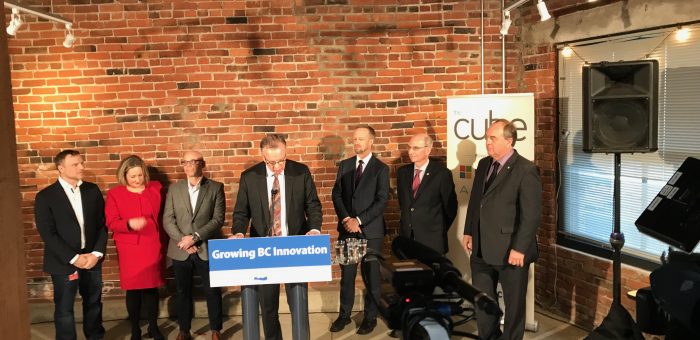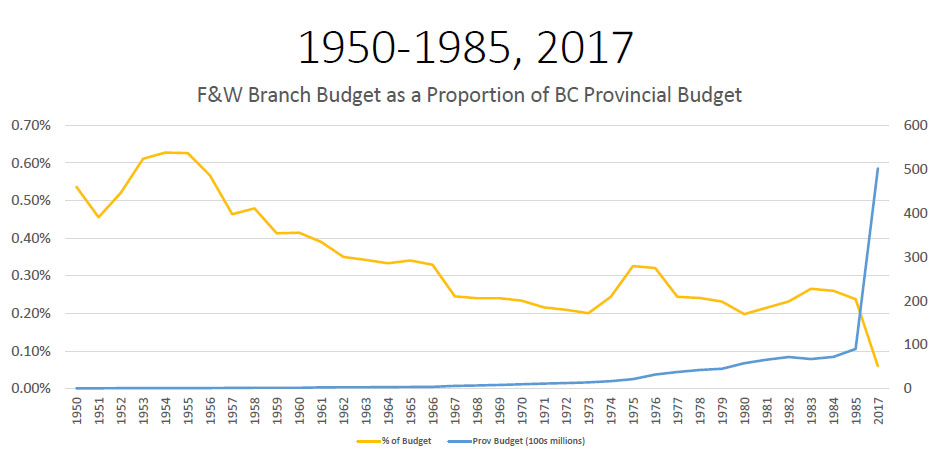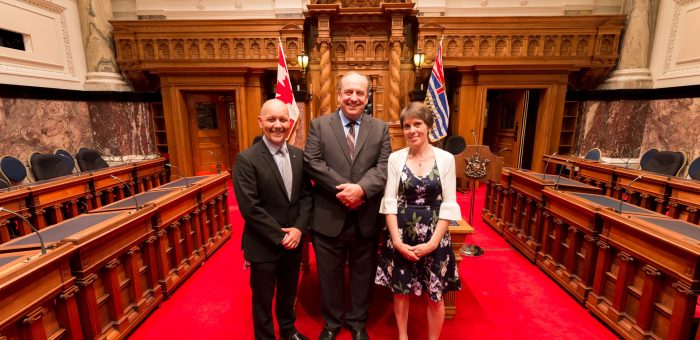Uncategorized
Paying tribute to Dave Barrett in the BC Legislature
Today in the BC Legislature the Premier, Leader of the Official Opposition and I paid tribute to former NDP Premier Dave Barrett who passed away on February 2, 2018.
Below I attach the video and text of my tribute.
Video of Tribute
Text of Tribute
A. Weaver: I rise to pay tribute on behalf of the B.C. Green caucus to a great British Columbian, Dave Barrett, who passed away on February 2 of this year. I also wish to extend my sincere condolences to his family gathered in the gallery today.
Dave Barrett dedicated much of his life to the service of British Columbians. He did so with passion. He did so with commitment. He did so with integrity, and he did so both here in the B.C. Legislature as well as in the Houses of Parliament in Ottawa.
Dave Barrett, without a doubt, was one of Canada’s great Premiers. During his time as Premier from 1972 to 1975, his government passed a remarkable 367 bills, averaging one every three days. Much of his legacy has stood the test of time. His government created ICBC, launched PharmaCare and passed the human rights code, to name but a few of his impressive and lasting achievements.
In 1973, British Columbia was faced with sprawling urban development that threatened to swallow up precious agricultural land, including some of the best farmland in Canada. It was a challenge with opponents down every avenue, and one that a timid political leader would likely have avoided. Premier Dave Barrett and his government rose to the challenge through principled and focused leadership.
They preserved Cypress Bowl — what he described as his greatest legacy — and they protected vast swaths of land from developing by creating the agricultural land reserve, ensuring that future generations would have access to quality farmland and locally grown food. It was an act that angered many in the development community, but it was a bold and important act that was grounded in the principle of intergenerational equity.
A great orator. A gregarious individual with a wicked sense of humour. A man of integrity and principles, and a man of the people. These are but a few of the traits for which he will be remembered.
As a junior high school student in the mid-1970s, Dave Barrett’s political leadership inspired me. His lasting legacy continues to do just that each and every day in the Legislature.
As we say goodbye to Premier Barrett, we should collectively reflect upon his great accomplishments, for it is with leadership like his that we can continue a build a province that is forward-looking, innovative and compassionate.
Thank you, Dave Barrett, for all that you did. You will be missed but never forgotten.
British Columbia announces Dr. Alan Winter as Innovation Commissioner
Today in Vancouver the BC Government announced the appointment of Dr. Alan Winter as the new Innovation Commissioner. The creation of an Innovation Commission as well as an Emerging Economy Task Force were key aspects of the strategy for the new economy component of our BC Green Party Platform in the 2017 Provincial Election. We were delighted that the BC NDP shared our vision and agreed to including both as key elements of our Confidence and Supply Agreement.
The BC NDP were very gracious in inviting us to be part of the announcement. Below I reproduce my brief remarks at the event as well Dr. Winter’s biography and the BC Government’s media release.
Video of my Brief Remarks
Biography — Alan Winter
Alan Winter has a breadth of experience at senior levels in the technology sector and in government, including such roles as the president and CEO of Genome B.C. from 2001 to 2016. He was the founding president and CEO of the New Media Innovation Centre in Vancouver, the president of the ComDev Space Group in Ontario and the president and CEO of MPR Teltech Ltd. in Vancouver (at that time the largest technology company in B.C.) During his tenure as CEO, six companies were spun out of MPR, including PMC-Sierra and Sierra Wireless.
Prior to MPR, Winter worked for Telesat Canada and the federal Communications Research Centre in Ottawa, where he was responsible for the satellite-aided search and rescue project (Sarsat). The international Cospas-Sarsat system continues to be instrumental in saving many lives.
Winter is a director of the Victoria Hospitals Foundation, Ontario Genomics and Geoscience BC, an adjunct professor at the University of Victoria’s Peter B. Gustavson school of business and a member of the University of British Columbia’s Research and Innovation Council.
In 2007, he received a Leadership Award from LifeSciences BC, and in 2017 he received its Don Rix Award for Lifetime Achievement. He has served as a director of more than 30 organizations, including the Business Council of British Columbia and Alberta Innovates.
On the federal side, he was chair of the board of the Communications Research Centre Canada, deputy chair of the Council of Science and Technology Advisors, and a member of the Expert Panel on Science Performance and Research Funding, Council of Canadian Academies.
Winter is a fellow of the Canadian Academy of Engineering and a fellow of the American Association for the Advancement of Science. He is also a fellow of the Canadian Astronautics and Space Institute and received its inaugural Alouette team Award. He received his PhD from Queen’s University in Kingston, Ont. and was recognized by the Queen’s alumni Legacy of Achievement.
BC Government Media Release
For Immediate Release
2018JTT0004-000146
Feb. 5, 2018
Office of the Premier
Ministry of Jobs, Trade and Technology
NEWS RELEASE
First innovation commissioner to champion B.C.’s tech sector
VANCOUVER – British Columbia’s thriving tech sector will have a new voice in Ottawa and abroad, following Alan Winter’s appointment as the province’s first innovation commissioner.
“We’re thrilled to have Alan Winter take on this newly created role of innovation commissioner, and we look forward to creating new opportunities for B.C. tech companies, shepherding innovation across all industries and all regions of the province, and generating good jobs for people in B.C.,” said Premier John Horgan. “Today’s announcement is an example of what can be achieved through co-operation and putting the people of B.C. first. I know that Mr. Winter will proceed in that spirit of co-operation to strengthen national and cross-border relationships, and ensure that B.C. maximizes federal funding to benefit B.C. innovators and employers.”
The innovation commissioner is a component of the Confidence and Supply Agreement with the B.C. Green Party caucus to help B.C.’s tech sector access the capital, as well as the national and international connections it needs to succeed. Recognizing its potential for success, the B.C. government has adopted the concept as part of its efforts to establish B.C. as a preferred location for new and emerging technologies.
“We proposed the innovation commissioner to be an advocate and ambassador on behalf of the B.C. technology sector in Ottawa and abroad, to enable B.C. companies to more easily tap into existing federal programs and build key strategic relationships,” said B.C. Green Party Leader Andrew Weaver. “Alan Winter’s distinguished career as a leader in innovation makes him precisely the right person to champion our tech sector and help B.C. to capitalize on our strengths to build a thriving 21st-century economy.”
As B.C.’s foremost tech advocate, Winter’s mandate will include relationship-building with senior government leaders in Ottawa and with B.C.’s tech and innovation network, including partners in industry, academia and the province’s regional tech accelerators.
“Alan Winter’s breadth of senior leadership experience in the biotech and information technology fields makes him the ideal ambassador for our tech and innovation sector,” said Minister of Jobs, Trade and Technology Bruce Ralston. “His appointment is one of the many ways your government is working to enhance B.C.’s economy and continue to grow our thriving innovation sector.”
The innovation commissioner will help leverage federal funding programs in support of B.C.’s tech and innovation sector. He will also take an active role in B.C.’s partnership with Washington state to further develop the Cascadia Innovation Corridor.
“I want to make sure B.C. companies are at the front of the line for investment and partnership opportunities, both here in Canada and around the world,” Winter said. “My first priority will be championing Canada’s Digital Technology Supercluster, which could provide B.C.’s tech sector with a major boost in federal funding.”
The innovation commissioner has been appointed by order-in-council for a term of one year, with the option for reappointment based on performance.
Before it’s too late: British Columbia needs a science- and ecosystem-based approach to wildlife management
At the time of European contact, wildlife were so abundant in British Columbia that early explorers marveled at the richness of the land.
“The country is so crowded with animals as to have the appearance in some places, of a stall yard,” Alexander Mackenzie wrote in his journal in 1793 while on the Peace River. He reported seeing herds of elk on the grasslands near Bear Flat, the irreplaceable habitat that will be drowned when the Site C dam is constructed.
Just over a decade earlier, on the West Coast of Vancouver Island, Captain James Cook noted an abundance of sea otters. He traded pelts into China, sparking a rush for furs that didn’t abate until sea otter populations crashed. It was the first example, in what would become known as British Columbia, of economic forces eradicating a species.
Early European settlers established markets not only for furs, but also for the hides and meat of wildlife. The uncontrolled harvesting that followed soon led to the extirpation of Roosevelt Elk on the Lower Mainland and Wood Bison in northern B.C.
By the late 1800’s wildlife losses were so widespread the public began demanding an end to the free-for-all. In 1859 the first ordinances “providing for the protection of game” were passed in B.C. In 1905 the government organized wildlife management, establishing the Department for the Protection of Game and Forests, although it didn’t get funding until 1908. The annual budget: $10,000.
In 1933 Aldo Leopold, an American conservationist and writer, published Game Management, a book that has been credited with creating the discipline of wildlife management through the application of scientific principles. Indeed, his work planted the seeds of what would eventually become the North American Model of Wildlife Conservation.
One of the key tenets of the Model, which is now widely applied across the continent, is that science – not the dictates of special interest groups – should guide wildlife policy.
I have dedicated my life to understanding our world and its problems through science, but have been surprised at how difficult it is to convince governments to consistently follow scientific reasoning. While the concept of science-based wildlife management has generally been endorsed in B.C. it has not always been applied.
There have been successes. Sea Otters are making a comeback, elk herds are increasing in southern B.C. and bison were successfully reintroduced to some areas in the north. But its selective use has lead to more disasters.
Many wildlife populations are in jeopardy today. Mountain caribou are facing extirpation, wild salmon – a foundation species – are in shocking decline, spotted owls are virtually extinct, and moose populations, which many rural families rely on for sustenance, are in trouble across the province.
What we find in almost all of these instances is that there has been inadequate science, particularly concerning cumulative impacts, and that an unacceptable loss of vital habitat has occurred. The management of wildlife, and the application, or not, of scientific principles, continues to stir great controversy and emotional debate in B.C. Understandably so.
Wildlife management conflicts in which species are pitted against one another are truly challenging, but I have always maintained that humans – elected representatives in particular – have a moral obligation to prevent endangered species from going extinct.
Often, extreme situations are created because government has failed to act. They are typically situations that – for a variety of industrial, social, or budgeting excuses – have been allowed to escalate far past a point of simpler intervention.
When you start rationalizing culling one species to protect another you also introduce an ethical element that needs to be considered alongside scientific findings. Let one – or both – of those species become threatened or endangered, however, and your situation becomes immensely worse.
Some say that humans should not interfere with nature, but sadly, intervention is sometimes necessary. Simply put, many ecosystems have been altered so drastically that we can no longer just stand by and let nature take its course.
If we don’t continue to intervene with the mountain caribou crisis we are currently facing, for example, it will not be long before the remaining herds in the South Selkirk and Peace regions are extirpated.
We cannot let that happen.
Predator control, hunting closures, and restrictions that stop industries from undertaking resource developments are all difficult matters for governments to deal with.
But things aren’t going to get easier. The management of wildlife is becoming increasingly complex and fraught with risk.
Habitat loss is mounting.
The human population is growing.
Roads and pipelines have been spreading into the farthest reaches of the province, and researchers have discovered how such developments increase predation, shift wildlife distribution, and impact abundance.
Wolves, for example, use road and pipeline clearings to get a good line of sight on caribou, expanding into new territory to more efficiently track down their prey. Increased road densities and human activity in wilderness areas elevates human-caused mortality of grizzly bears and reduced the number of bears in the area, scientists at the University of Alberta have recently found.
In a paper published this week in the journal Conservation Biology, scientists wrote about threats to biodiversity from cumulative human impacts in B.C., “one of North America’s last wildlife frontiers.”
“Land-use change is the largest proximate threat to biodiversity yet remains one of the most complex to manage,” they wrote. “For ecosystems, we found that bunchgrass, coastal Douglas fir, and ponderosa pine have been subjected to over 50% land-use conversion, and over 85% of their spatial extent has undergone either direct or estimated indirect impacts.”
Adding to all these other stressors now is climate change. The full implications aren’t yet clear, but we cannot situate our wildlife strategies in the past. Our environment is changing and will continue to do so.
We must be prudent and precautionary as we manage our changing landscape as the planet warms. The timing and abundance of food availability, for instance, will shift for some plants and animals. Species reliant on their stability will need space and additional resources if they are to adapt.
Another challenge that will become increasingly present in B.C. is that of invasive species. Not species introduced from a faraway land, though that will continue to be an issue, but species that have migrated from nearby landscapes as their own native environment ceases to meet their needs — climate refugees, in a sense.
As certain areas become warmer, for example, native species may start to move north. How will we manage those newcomers if they are having a negative impact on our own resident species? What if the invasive species are threatened or endangered in their home ecosystem?
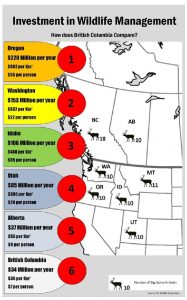 A few years ago, with concerns growing about how B.C. was managing wildlife in the face of growing pressures, the B.C. government assigned an MLA to do a comprehensive review of its policies.
A few years ago, with concerns growing about how B.C. was managing wildlife in the face of growing pressures, the B.C. government assigned an MLA to do a comprehensive review of its policies.
“There has never been a time in British Columbia’s history where balancing the cumulative impact of resource development and biodiversity has been so complex.” Liberal MLA Mike Morris wrote in his 2015 report, Getting the Balance Right: Improving Wildlife Habitat Management in British Columbia.
“There is an urgency and heightened concern amongst resident hunters, guide outfitters, trappers, the wildlife viewing industry and conservationists that the province is not acting quickly enough to address the decrease in wildlife populations and the degradation of wildlife habitat,” Morris wrote.
He called for more wildlife management staff and “better planning, better science and more timely and effective implementation of policies and programs.”
But the government never delivered.
“B.C. balks at changing law to protect wildlife and biodiversity” said The Vancouver Sun headline.
“The B.C. government will not be changing laws or considering hiring more staff as recommended in a report by one of its own MLAs on how to protect wildlife and biodiversity from the effects of resource industries,” the story said.
For far too long government has shortchanged wildlife management in B.C.
It’s fine for Ministers to say they support science-based decisions – but where is the science? Where are the field researchers? Where are the basic boots on the ground that are needed to keep a close watch on our wildlife populations and habitat?
The necessary funding just isn’t there.
B.C. ranks behind its neighbours in the northwest when it comes to investment in wildlife management. Alberta, Washington, Montana, Oregon, Idaho, Utah – all spend more on managing less.
The shameful underfunding of wildlife management has taken place under successive Liberal regimes. Now we have a new NDP government, but it has yet to show if it will fully embrace – and fund – science-based management.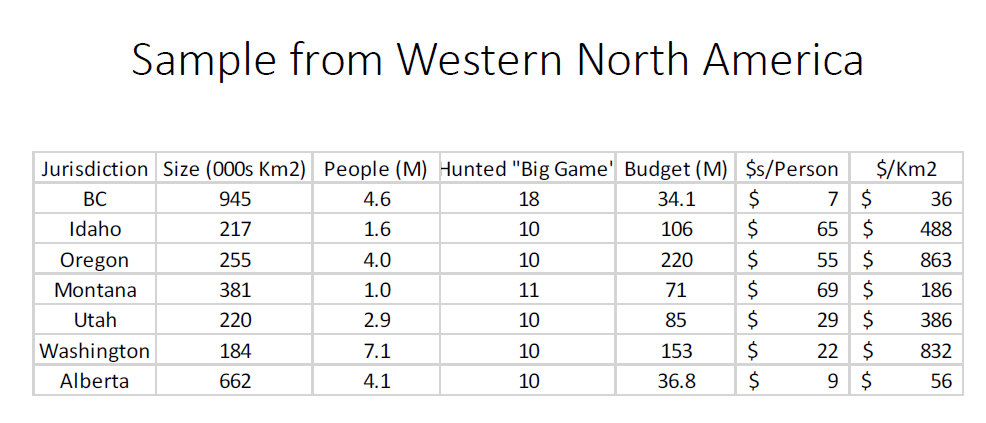
The problem is compounded because Ottawa too has been cutting back on wildlife science. In B.C. our wild salmon stocks are in decline, putting in jeopardy not only the economies of fishing communities, but also the health of killer whales, bears, eagles and other predators.
But a study published recently concluded, “there is inadequate information to determine the biological status of roughly one-half of all CUs ” in B.C.
CUs, or Conservation Units, are the system by which the federal government is supposed to monitor and manage our wild salmon stocks.
But Canada’s Wild Salmon Policy: an assessment of conservation progress in British Columbia reports that the government just basically gave up on collecting the data. We don’t know what is happening on the rivers because the government stopped keeping track.
“Our state of knowledge regarding salmon populations is eroding rapidly. Without increased support for escapement surveys and the transfer of knowledge to the next generation, the rich legacy of population data available for BC’s north and central coasts is at serious risk of becoming irrelevant for future assessments of management and conservation status,” states the study led by Simon Fraser University researchers Michael Price and John Reynolds.
B.C. is Canada’s most ecologically diverse province but if we are to maintain that rich biodiversity, we need to see a serious commitment to science-based, evidence-based wildlife management – and we need to have dedicated wildlife funding put in place, so managers have the budgets, and the staff, required to do the job.
As the Select Standing Committee on Finance and Government Services recommended in its Report on the Budget 2017 Consultations, license fees collected from natural resource users (hunters, anglers, ecotourists, etc.) should be directed into conservation and wildlife management services, rehabilitation, enforcement and education. In that, we must “prioritize and fund restoration and protection of endangered fresh and saltwater fish species and fisheries.”
Effective natural resource management is reliant on funding, science, and social support. We seem to have consensus on this within the B.C. government, but it needs to be put into action.
Prior to the election, I campaigned on establishing a Natural Resource Commissioner who could lead a Natural Resources Board responsible for establishing sustainable harvest and extraction levels and reporting on the state of B.C.’s environment and natural assets. The NRB, I proposed, would conduct cumulative impact assessments, and oversee the professional reliance model.
Since the election, the government has been working with us to improve the professional reliance model and B.C.’s environmental assessment process. We haven’t talked about creating a Natural Resource Commissioner position, but there is much we should to advance its values of scientific monitoring, reporting, and cumulative assessment.
Managing wildlife has always been difficult, but never more so than now, in the face of climate change. According to data released by scientists at NASA, 2017 was the second warmest year since record-keeping began in 1880, second only to 2016.
In the face of great challenges, it is clear to me that we need a comprehensive science- and ecosystem-based approach to wildlife management. We simply cannot continue to perpetuate the slow, methodical extirpation of native species in B.C.
Ecosystem-based management calls for natural resources, habitat, and species to be managed collectively, over a long time frame, rather than just looking at a single sector or single species.
Cumulative impacts are assessed – an approach which B.C. urgently must follow because of the sweep of industrial development now taking place in many sectors of the province.
Given the myriad challenges facing wildlife in our province, two of the best things we can do to protect biodiversity is to leave key habitat areas intact and fund environmental science. As the global climate warms and precipitation patterns shift, having a complete ecosystem within which animals and plants can try to adapt will be essential, and frankly it is the least we can do given the dire situation many species are in. Having an informed understanding of the changes taking place will help too.
It won’t be easy. But proactively protecting ecosystems – so we can all be resilient to the changes a warming climate will bring – is vital.
BC Greens send letter to BC Liberal caucus requesting better cooperation on amendments
Yesterday my caucus colleagues and I sent a letter to BC Liberal House Leader Mike de Jong concerning our desire to collaborate with the BC liberals on improving legislation.
The reason why we felt it was important to do so is that we have been blindsided by several amendments that the BC Liberals have brought forward at the last minute. It is very difficult to support amendments tabled this way as they have not gone through legislative drafters, and advance notice on the order papers has not been given to allow for thoughtful reflection upon, and stakeholder engagement in, the substance of the amendments.
In addition, this past session the BC NDP granted both the BC Liberals and the BC Greens access to legislative drafters. This good faith approach to doing politics differently was very much appreciated by our caucus and we have taken advantage of this new opportunity.
The most recent example of a BC Liberal amendment, whose intent is something we could support, but as written could not be supported, concerns changes to Bill 15: Local Elections Campaign Financing Amendment Act. It was clear from the debates that all parties agreed on the substance of what the amendment was trying to do. It was designed to allow candidates in self-funded local election campaigns to contribute an additional $1,200 (above the present $1,200 donation limit) to their own campaign. But as written, the amendment didn’t actually do what it was supposed to do.
Below I reproduce the video and text of an exchange I had with the Selina Robinson, the Minister of Municipal Affairs and Housing. During this exchange I ask the Minister to outline the problems with the proposed amendment. I was also able to get on record her commitment to introduce regulations that do precisely what the amendment was trying to accomplish, but didn’t actually accomplish. The regulation will be in place for the 2018 local government elections.
Below I reproduce the video and text of our exchange as well as the text of our letter to the BC Liberal caucus. I also append the very brief media advisory that we issued.
Video of Exchange
Text of Letter
Mike de Jong
House Leader for the Official Opposition
BC Liberal Caucus
Parliament Buildings, Victoria
November 22, 2017
Dear Mr. de Jong,
We are writing to express our Caucus’ desire to collaborate with yours on improving legislation. As you know, advancing good public policy based on evidence is a core goal of our Caucus, as is working across party lines. Our parties have a history of collaboration on this front, working together under your past government to pass vital legislation that requires post-secondary institutions to have sexual violence policies and to improve labour regulations to prevent employers from requiring their employees to wear gender-specific footwear.
We request that when your caucus has amendments to legislation that your Members follow the following two processes so that we can pass the best public policy for our province. First, we request that your Members give adequate notice of amendments by putting them on the order papers in a timely fashion. Even small amendments can have significant and sometimes unanticipated implications. To responsibly consider amendments, our Caucus may need to consult with your caucus, experts, staff and each other. We need to consider the impacts on our constituents and on existing policy as well as whether the proposed amendment is constitutional. For this very same reason, bills are rarely debated the same day they are introduced.
Second, the government has recently made legislative drafters available to opposition members for the first time. As you know from your days in government, it is imperative that new laws be crafted in accordance with proper legal language and in consideration of existing statutes and amendments. We therefore request that your Caucus take advantage of the legislative drafters so that we can be assured that any proposed amendments are legally sound.
Yesterday, during our debate over Todd Stone’s amendment to Bill 15, we raised concerns that the amendment had not been placed on the order papers and had not been written by legislative drafters. Shirley Bond stated that it was improper to focus on process when debating policy. However, we believe that for the reasons discussed above, proper process is indeed a prerequisite for good public policy.
We understand that opposition Members have the right to introduce amendments without following the above processes. However, leaders of both our parties have acknowledged that this minority government is a message from British Columbians that they want us to work together. In order to do so, we must not accept the bare minimum standards that are technically required of us. Instead, it is incumbent upon us as elected representatives to make use of all opportunities available to us to ensure we advance good public policy that is in the best interests of British Columbians.
The agreement we signed with the BC NDP is grounded in a relationship of trust and built on a foundation of good faith and no surprises. Our approach has been to work with your caucus from this same foundation. We hope you will see this as a reasonable request so that we can have a productive working relationship, and so that we can deliver better outcomes for the people we represent.
Sincerely,
Andrew Weaver Sonia Furstenau Adam Olsen
Leader House Leader Caucus Chair and Whip
B.C. Green Caucus B.C. Green Caucus B.C. Green Caucus
Cc. Rich Coleman, Interim Leader, B.C. Liberal Caucus
Media Advisory
Advisory: B.C. Greens letter to B.C. Liberal caucus requesting better cooperation on amendments
For immediate release
November 22, 2017
VICTORIA, B.C. – The B.C. Green caucus has sent a letter to the B.C. Liberal caucus requesting better cooperation on amendments.
The full letter is attached and can be read here.
-30-
Media contact
Jillian Oliver, Press Secretary
+1 778-650-0597 | jillian.oliver@leg.bc.ca
Text of Exchange
A. Weaver: I have a number of questions for the minister as we discuss this amendment further. My first question is that two days ago, when the minister was responding to — I forget — one of the members, he or she mentioned that she saw some constitutional issues or challenges with the amendment as put forward. I was wondering if she might articulate those to us.
Hon. S. Robinson: I wanted to let the member know that we were concerned about some potential issues. So I’ve had a chance to get some legal counsel on this. Some of the concerns include the effect of the amendment as drafted is different than what we understand the amendment to be. So based on legal review, the effect of this amendment is that once a candidate makes a contribution of any amount to their own campaign then the contribution limit for that candidate’s campaign is $2,400, regardless of who is making the contribution to that candidate. This rule does not limit the $2,400 to an amount that a candidate could provide to their own campaign. It means that any individual can provide up to $2,400 to the candidates campaign. It misses the mark there.
There are also some potential legal questions that have been identified. A significant question is whether it would be justifiable and fair that candidates in the same communities are receiving different treatment on an arbitrary basis. For example, an unendorsed candidate who contributes money to their own campaign has a higher contribution limit of $2,400 while other unendorsed candidates who do not contribute to their campaign have a contribution of $1,200. Because of this question, legal advice would be required.
Another question is whether this amendment could be viewed as limiting speech in elections by prohibiting candidates from receiving contributions in certain circumstances. There’s also lack of clarity. So for example, what would a candidate do if they ended up spending $1,200 but also received campaign contributions? Would they be required to return the contributions?
The proposed amendment also does not identify the consequences of contravening this rule.
So the provision really doesn’t fit within the legislative framework. It amends section 30.01 but does not account for necessary consequential amendments for other sections — or for elections after the 2018 general local elections, if that was the intention.
So for these reasons alone, we can’t support the amendment.
A. Weaver: Thank you to the minister for her response there.
I’d like to see if I can understand where we are today. So two days ago, we had the motion brought forward by the member from Kamloops–North Thompson, a motion that initially had something to the tune of $5,000 as a potential for a self-funded campaign.
We discussed this. Obviously, there were some communication issues as to what was being debated when, and we saw this motion, literally, as we were sitting here, and had to work on the fly. There were some discussions — and with great respect and thanks, the member for Kamloops–North Thompson…. South Thompson. I do apologize. The member for Kamloops–South Thompson. It is true that they tend to sing as one voice. They clearly — North and South Thompson — support each other, and it’s good to see that in the Legislature.
Interjection.
A. Weaver: As my friend from Saanich North and the Islands says: “the Loops.” The Loopsians are very supportive here.
Coming back then. So it was modified to reflect what we were hearing here — that we didn’t know where the number was coming from. And we agreed that $2,400 was a number that seemed a little more reasonable. We clearly…. We had some support here. Not everyone in our caucus, but we felt that there was a lot of support emerging into the spirit and concept of this.
We then had a day break and had some time to reflect upon the amendment that was brought forward to us, as the minister was out of town, in Vancouver with the housing announcement, with the Prime Minister, so was unable to attend committee stage at that time.
And after some reflection, we’re now back to a position where we have the amendment on the floor. The amendment is to allow self-funded campaigns to $2,400 — or at least that’s the intent of the amendment. And I’m grateful for the clarification that the minister has, in terms of some of the issues with the amendment as written and what interpretations could be.
So my final question on this, before I decide the direction I’d like to take in terms of my vote. My understanding is the minister has formally committed to introduce regulation that captures the spirit of the intent, because she, too, has heard — like our caucus has, and members opposite had — some concern about the ability of people in, particularly, rural areas, small regions, to self-fund their campaign and not be put at a disadvantage.
A lovely example of this was mentioned by the member for Abbotsford-Mission, who somehow was being used as an example to actually argue against limiting donations, when he’s the most beautiful example of actually supporting limiting donations, because, in his case, he never funded his campaigns.
My final point then is: is it correct that the minister has committed to introduce such regulations that haven’t captured the spirit of the discussion? So that the 2018 local government elections will be subject to some regulation that will allow for increased funding by yourself to your own campaign. And that we recognize that, after that election, everything will be looked at, and there will be some reflection, using the data to move forward, as we revise legislation or regulations in the months and years ahead?
Hon. S. Robinson: I appreciate the question. And certainly, I’ve heard from UBCM, and I’ve heard from candidates, and we’ve certainly heard in this House about the self-funding piece, particularly for smaller communities.
I think it’s really important, and what I indicated is, that we do understand where members of this House are going and what it is they’re seeking. And in taking this approach, I think it’s important that we do make sure that regulation fits within the legal framework of the legislation and that we avoid the legal question marks that were raised by the amendment proposed by the member opposite.
So taking all things into consideration, we need to make sure that a regulation needs to fit the importance of monitoring the 2018 local elections, to gather information about the nature and extent of self-funded campaigns — not just on the contribution side, but on the expense side. This is the first time we’re doing that. I know that the members down the way really appreciate having good data, so it’ll be the first time that we’ll actually have this data, which will allow us to reflect on all of these components for local elections.
With all of that in mind, my intention will be to recommend a regulation that provides for candidates to make an additional campaign contribution of up to $1,200 in 2018 to their own campaign, with that being in addition to the regular contribution limit of $1,200, bringing the total in those circumstances to $2,400 for 2018. It provides for some equivalent authority for candidates endorsed by an elector organization, while ensuring that the total additional amount that is provided to an elector organization’s campaign through its endorsed candidates could not be more than $1,200 — again, for a total of $2,400 in 2018 in those circumstances.
What this will do, hon. Member, is that it will allow us to adjust to what we’ve been hearing, and it will allow us to do a number of things afterwards, to take a look at all the data to make sure that it’s hitting the mark. If it’s not hitting the mark, if that needs to be increased because we get feedback that that wasn’t quite enough, we can readily do that. Or if we learn that that was too much, then we can scale that back.
The other thing it does — and I think it’s really important — is that it allows to us be nimble. Government is not very nimble, generally speaking. So having it in regulation, should there be a by-election and we need to act appropriately and quickly, we can do that. I want to assure the member down the way that that is my intention.
A. Weaver: Thank you to the minister for the detailed response, and thank you to the member for Kamloops–South Thompson, who has brought this issue to this debate here. I am seeing here an agreement coming across party lines on this very important issue. Again, thank you to the member for Kamloops–South Thompson and thank you to the minister for responding in such an informative way.
Announcement that ride-hailing will go to an all-party committee
Today I issued a media release noting that government will be introducing a debatable motion next week to move the issue of ride-hailing to an all-party committee. As noted in the release, reproduced below, the committee, comprises MLAs from all three parties, will engage with expert witnesses, debate the issue and produce a report to be released by February 15, 2018. The intention is to inform the development of subsequent ride-hailing legislation that will be brought forward next year.
This an exciting development for the BC Greens. I have thrice (twice under the BC Liberals and once under the BC NDP) introduced a private members bill designed to create the regulatory environment that would enable ridesharing in BC (it is already occurring but in an unregulated fashion). It looks like we are finally moving forward in a tripartisan fashion.
Media Release
Weaver announces that ride-hailing will go to all-party committee
For immediate release
November 23, 2017
VICTORIA, B.C. – Andrew Weaver, leader of the B.C. Green Party, announced today that ride-hailing will go to an all-party committee of MLAs. For several weeks the B.C. Greens have been working with the B.C. NDP to develop an approach that would allow important questions related to ride-hailing to be canvassed. The committee, comprised of MLAs from all three parties, will engage with expert witnesses, debate the issue and produce a report to be released by February 15, 2018 intended to inform subsequent ride-hailing legislation next year.
“I am delighted that this issue will finally be addressed in a collaborative fashion by all three parties,” Weaver said.
“The committee’s report will tackle key questions not addressed in the terms of reference created by the government for their review of the taxi industry. We will consider important issues like insurance, public safety and the impact of ride-hailing on different communities and municipalities across the province.
“It has been six years since ride-hailing companies first attempted to enter the B.C. market. All three parties have now agreed that we need to bring this technology to B.C. in a regulated fashion. My goal with this committee is to make this the last holiday season in which British Columbians are faced with fewer transportation options than every other major city in North America.”
Weaver introduced a Private Member’s Bill to enable ride-hailing in B.C. for the third time in October. In-mid October the B.C. NDP announced they had hired Dan Hara to conduct a review of the taxi industry, however, the terms of reference did not explicitly include ride-hailing.
-30-
Media contact
Jillian Oliver, Press Secretary
+1 778-650-0597 | jillian.oliver@leg.bc.ca


